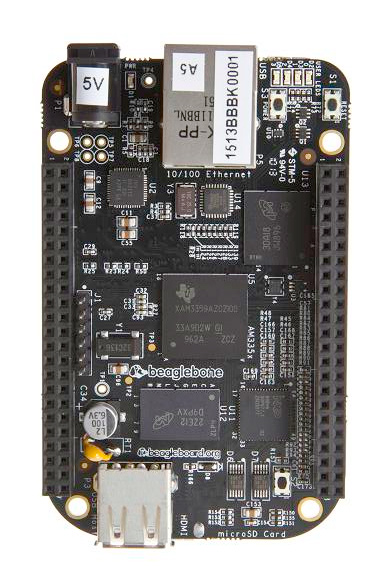Een alleszeggende titel. Vorige week kennis gemaakt met iemand die bij mij om de hoek woont (en dan ook echt om de hoek) die een complete educatieve muziekomgeving onder Linux heeft gebouwd met behulp van JACK, mididings, QMidiRoute, QmidiNet, Qsynth en Bash scripts. Waanzinnig. En werken als een trein. Hele klassen kunnen via het netwerk met elkaar muziek maken, meespelen met backing tracks of gewoon lekker rommelen met diverse instrumenten. Heel bijzonder en je begrijpt wel dat ik heel graag wil meewerken aan het verder perfectioneren en professionaliseren van deze leeromgeving.
M’n Raspberry Pi’s lagen wat stof te happen maar daar is sinds een paar weken wel een einde aan gekomen. Werd eigenlijk getriggered door een post op de Jack-Devel mailinglist met een patch voor ARM platformpjes zoals de RPi. Een vergelijkbare patch was maanden geleden al een keer gepost maar is bijkans niet meer googlebaar dus aan mijn aandacht ontglipt. Door de patch op Jack-Devel kon ik weer verder als in JACK (zowel Jack1 als Jack2) draait prima op de RPi met deze patch. In eerste instantie kreeg ik de boel niet goed draaiende (vooral full-duplex kreeg ik niet voor elkaar) maar na me goed ingelezen te hebben heb ik mijn RPi zo weten te tweaken dat deze bruikbaar is voor real-time, low-latency audio. Afgelopen woensdag m’n bevindingen laten zien en horen op een Horus meeting en de RPi hield zich prima als virtuele gitaarversterker. En dat allemaal op een ontwikkelboardje van nog geen €30,-. Mijn bevindingen heb ik neergepend in de linuxaudio.org Wiki: http://wiki.linuxaudio.org/wiki/raspberrypi
Ook op mijn werk heb ik het erg druk. Heb me gestort op het WebRTC gebeuren en dat begint nu wel te lopen. Klanten zijn bijzonder geïnteresseerd in het videobelplatform dat we aan het ontwikkelen zijn en het werkt gewoon goed. Ook is het altijd fijn om nieuwe dingen te leren (WebRTC, WebSocket, STUN/TURN/ICE) of je meer te kunnen verdiepen in dingen waar je al wel wat van af wist maar die je nooit echt praktisch hebt hoeven toepassen (audio- en videocodecs, encrypten van datastromen, iptables). Ondertussen zijn we al weer verder aan het kijken naar een volgend project waarbij de focus ligt op router-achtige hardware en software, oftewel we gaan proberen zelf eenvoudige network appliances te gaan bouwen. Onze bureaus worden inmiddels bevolkt door RPi’s, MikroTik RouterBoards en PC Engines Alix boardjes. En die mag je dan onder de baas z’n tijd gaan zitten hacken. Hoe vet is dat. Vooral als het werkt en je met elkaar kunt bellen via een boardje met een 400MHz MIPS processor waar zelfgebouwde OpenWRT firmware op draait.
Oh ja, en maandag gaan we trouwen.



